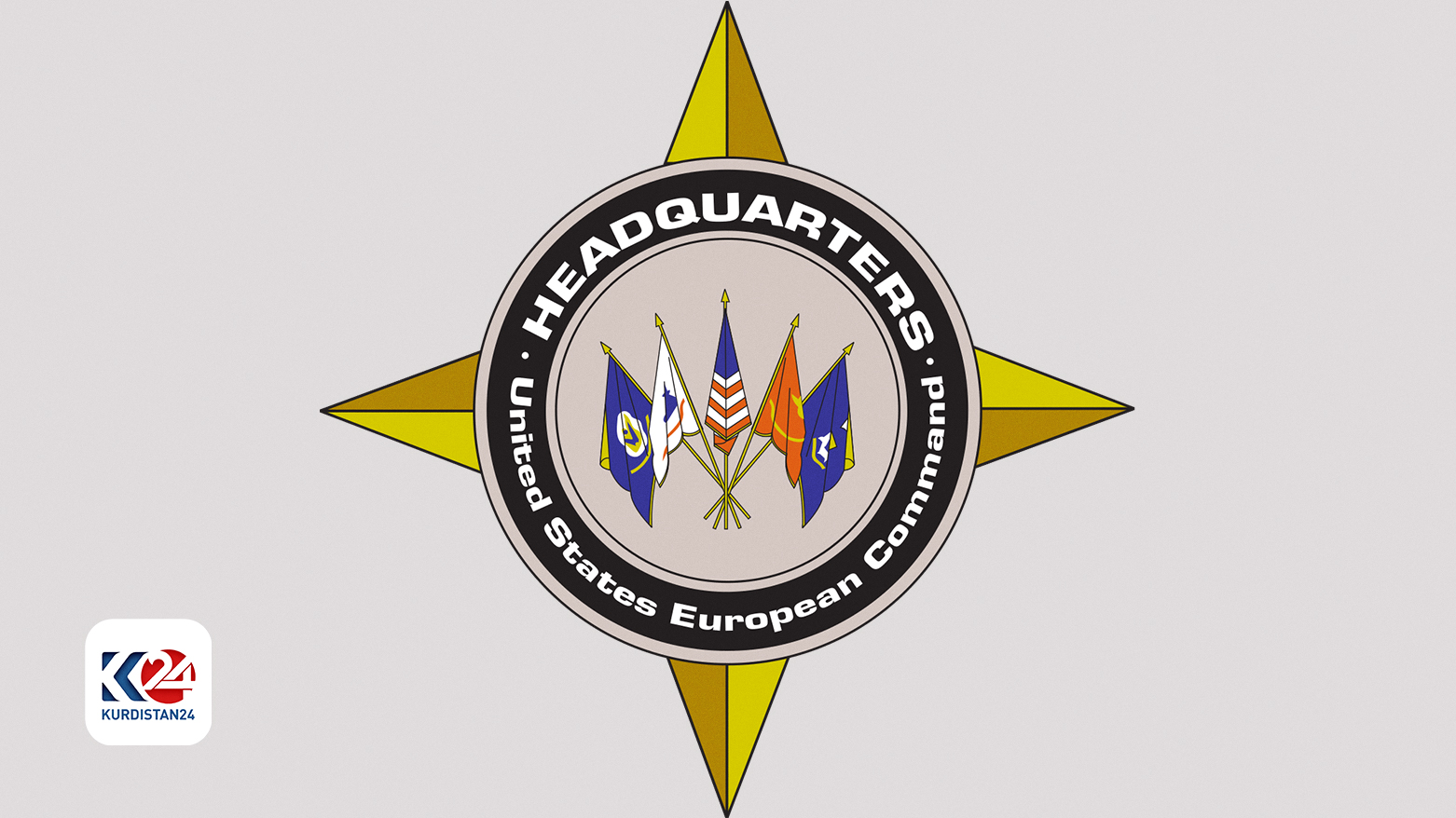US Raises Terrorism Alert for Military Bases in Europe
EUCOM is clearly concerned about the emergence of a new terrorist threat, but it gave no indication about the source of that threat.

WASHINGTON DC, United States (Kurdistan 24) – A number of U.S. military bases raised their terrorism alert level on Sunday, CNN reported. The CNN story was then widely echoed in other media.
Stars and Stripes, a newspaper that serves the U.S. military, reported that alert levels were raised at the headquarters for U.S. European Command (EUCOM) in Stuttgart Germany. Similarly, alert levels were raised at the U.S. Army’s Rheinland-Pfalz base, as well as the Ramstein Air Base, both in Germany.
All together, the bases “form the largest U.S. military community overseas,” it said.
Similarly, in Italy, the alert level was raised at Aviano Air Base, as well as other installations.
Such alert levels range from Alpha, the lowest, to Delta the highest. Since the Sept. 11, 2001, attacks on New York and Washington, U.S. military facilities have generally been at Bravo.
Sunday’s measures raised the alert levels from Bravo to Charlie. Quoting the U.S. Army, CNN explained that the Charlie level “applies when an incident occurs or intelligence is received indicating some form of terrorist action or targeting against personnel or facilities is likely.”
A U.S. official stationed at a base in Europe told CNN that they had not seen a threat level so high “in at least ten years,” and that such a threat level usually means the military has received an “active-reliable threat.”
Although it is clear that EUCOM is concerned about a new terrorist threat, it provided no indication about the source of that threat.
Two weeks ago, The Financial Times reported that German authorities were concerned that ISIS in Afghanistan, known as ISIS-K or ISIS-Khorasan, could carry out a major attack on the same scale on which it attacked the March 22 concert at the Crocus City Hall in Moscow, in which nearly 150 people were killed.
Two days later, Paris raised its terror alert warning to the highest level "in light of the Islamic State's claiming responsibility for the (Moscow) attack and the threats weighing on our country,” the French Prime Minister tweeted at the time.
And there have been other, more recent terror attacks.
Nigeria
Nigeria suffered three suicide bombings on Saturday, killing at least 18 people. All three of the bombers were women.
No party claimed responsibility, but suspicion fell on the Islamic extremist group, Boko Haram. The attack occurred in the northeast state of Borno, where the terrorist group had previously been active.
Over the years, the Nigerian military waged an extended campaign against Boko Haram, and in 2019, the Nigerian President, Muhammadu Buhari, declared it had been “technically defeated.”
It seems, most likely, that Boko Haram’s terrorism has been renewed or that Saturday’s attack was the product of some offshoot that has recently emerged.
Serbia
Also on Saturday, there was an unusual terrorist attack in the Serbian capital of Belgrade. A man with a crossbow shot an arrow at a police officer, guarding the Israeli embassy. Although the officer was hit in the neck, he still managed to shoot and kill the attacker.
Taken to hospital, the officer underwent surgery to remove the arrow and was reported to be in stable condition.
Serbia’s senior Islamic cleric, Senad Halitovic, strongly condemned the attack and wished the officer a quick recovery.
Police identified the assailant as a convert to Islam and said that he was associated with individuals who had embraced Wahhabism, an extreme form of Islam with roots in18th century Saudi Arabia.
They also said that prior to the attack, the group had been under police surveillance, as authorities had been gathering evidence in order to bring criminal charges. However, they somehow missed the preparations for the attack.
The assailant clearly intended to attack a Jewish target. He first went to a synagogue, but was deterred by a heavy police presence there. He then went to the embassy.
Although Serbian authorities have provided no suggestion for the motive behind the attack, the most evident explanation is the war between Israel and Hamas in Gaza.
Iraq
In addition, pro-Iranian militias, calling themselves the Islamic Resistance in Iraq, have threatened that if Israel launches a war in Lebanon, as it has threatened to do in response to Hizbollah’s attacks, "US interests in Iraq and the region will be a legitimate target for the resistance fighters."
Read More: Radical Iraqi militia threatens to expand operations amid Israeli-Lebanese tensions